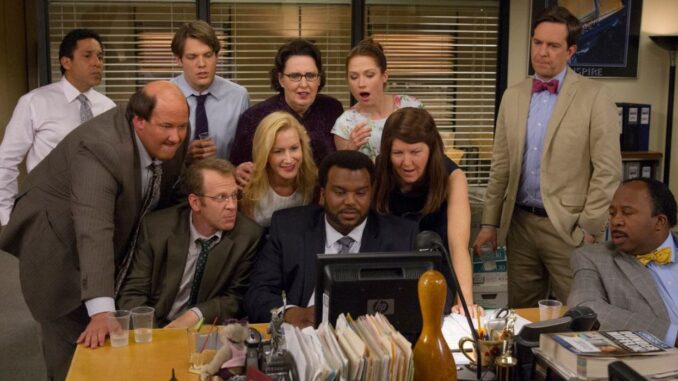
The fluorescent glow of Dunder Mifflin’s Scranton branch was, for many years, a strangely comforting beacon. The Office, with its awkward silences, inter-office romances, and the everyday absurdities of cubicle life, wasn't just a sitcom; it was a warm, slightly dusty quilted blanket of comfort. We knew the rhythms, the inside jokes, the deeply flawed yet undeniably lovable characters who felt less like fictional creations and more like our own odd, extended family. So, when the time came for goodbyes, we expected them to be grand, a crescendo of sentimental speeches and tear-soaked hugs. What we received, instead, was a whisper, a gentle fade-out so understated, so quietly profound, that no one was truly ready for the gut-punch it delivered: Michael Scott’s final, almost-unseen departure.
For seven seasons, Michael Scott, the mouth-breathing, socially awkward, yet undeniably lovable regional manager, had been the sun around which the Dunder Mifflin universe revolved. He was the chaotic heart of the show, a walking, talking cringe-comedy machine who, despite his endless gaffes and desperate need for approval, genuinely loved his "children." His final episode, "Goodbye, Michael," was built on an exquisite scaffold of misdirection. The entire office, Michael included, believed his last day was tomorrow. A big party was planned, farewells were anticipated, emotional goodbyes rehearsed in our collective minds. We were prepared for the spectacle, the final, glorious flourish of Michael being Michael.
But Michael, in a rare moment of selfless grace, had decided to spare everyone the melodrama. His true last day was that day. He moved through the office like a ghost, delivering private, almost perfunctory goodbyes, each one laden with an unspoken weight. A final, heartfelt game of paintball with Dwight, a quiet moment of fatherly pride with Erin, a touching acknowledgement of Stanley’s crossword puzzles. These weren't the dramatic farewells we’d been conditioned to expect from a show known for its big emotional beats. They were subtle, almost mundane, making them all the more devastating. The air crackled not with anticipation of fireworks, but with a strange, melancholic hum, the realization dawning that this was it, truly.
Then came the moment that ripped through the carefully constructed emotional armor of viewers worldwide: Pam. She had missed Michael’s “final” day due to a client meeting. Racing back to the office, frantic, knowing she was too late for the big farewell, her desperation was palpable. We felt it with her, the crushing weight of missing a crucial, final moment. But as she stood dejected, looking at Michael’s empty office, a plane was boarding. And there he was, Michael, walking through the airport terminal, a carry-on bag in hand, ready to leave for Colorado and a new life with Holly.
What followed was a silent sacrament, a moment of such raw, unadulterated intimacy that it transcended the boundaries of television. Pam, out of breath, hair askew, her face a canvas of frantic hope and dawning sorrow, threw herself into Michael’s arms. And then, the deliberate, masterful stroke: the camera, mimicking the in-world documentary crew, watched as the boom mic operator slowly, respectfully, lowered his mic and walked away. The sound faded. The dialogue, whatever profound words Pam and Michael exchanged, was gone, muted, left to the sacred space between two souls. We saw their embrace, their whispered goodbyes, the genuine affection radiating between them, but we couldn't hear a word.
This deliberate muting was the genius of the scene. It denied us the easy emotional release of a dramatic monologue or a final, tearful declaration. Instead, it forced us to feel. The absence of a voice spoke volumes, emphasizing the intensely personal nature of their bond, a relationship that had evolved from awkward boss-employee to something akin to father-daughter. It was a goodbye so intimate that even the ever-present documentary crew knew better than to intrude. It was Michael Scott, the man who craved an audience, given the quietest, most private, and therefore most meaningful send-off imaginable.
The show continued, of course. Dunder Mifflin still hummed, and new characters stepped into the void. But the absence of Michael Scott, the gaping hole he left behind, was keenly felt. His goodbye wasn't a bang, but a quiet, almost imperceptible closing of a door, leaving us standing in the hallway, blinking back tears, realizing only moments after it had happened that we had just witnessed the departure of the show’s very soul. No one was ready for it, and perhaps, that was precisely the point. It mirrored life’s most profound goodbyes – rarely are they on our terms, rarely do they come with a convenient soundtrack. More often, they are quiet, unexpected, and leave an ache that resonates long after the last words, spoken or unspoken, have faded into the silent, vast expanse of memory.